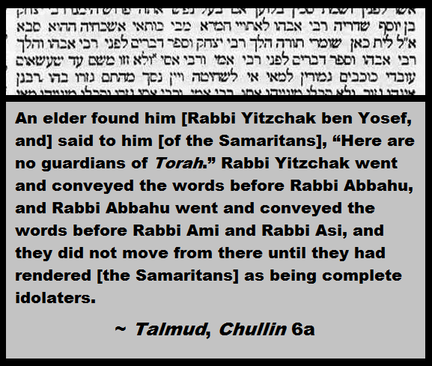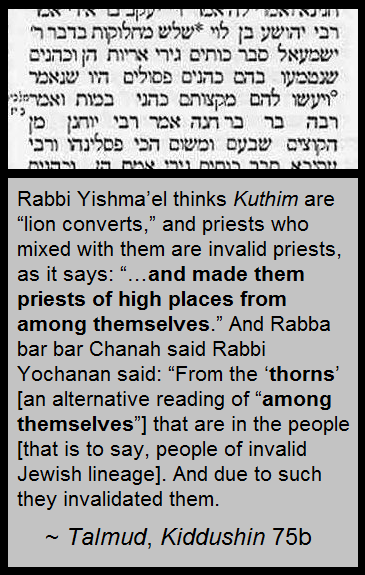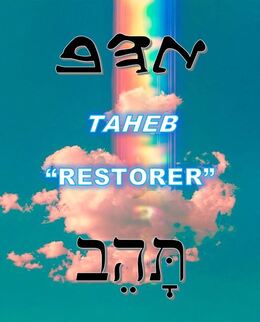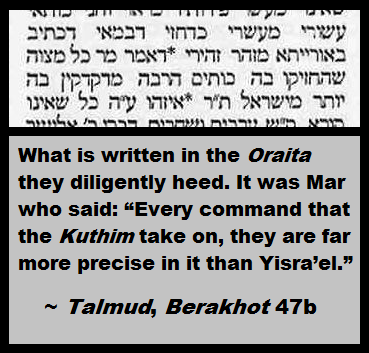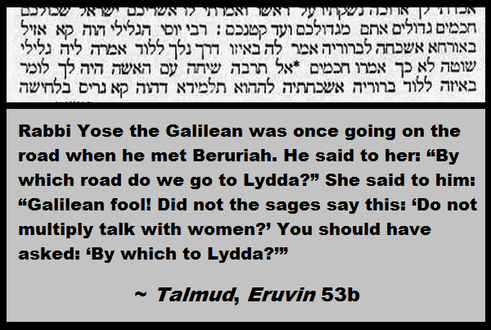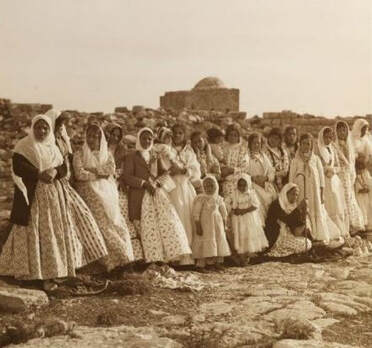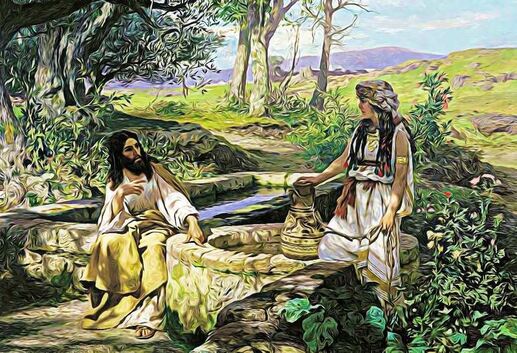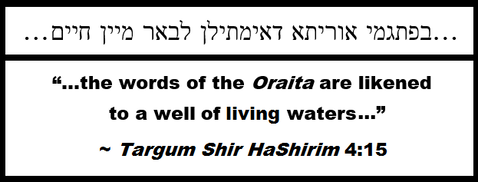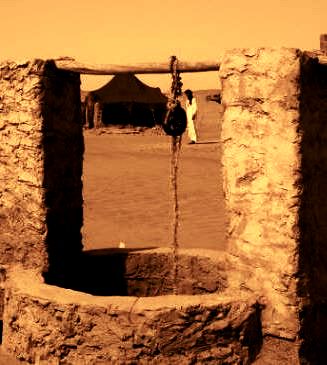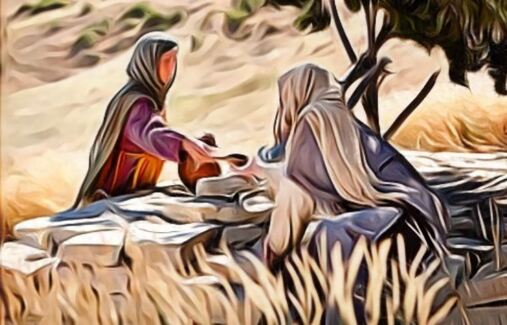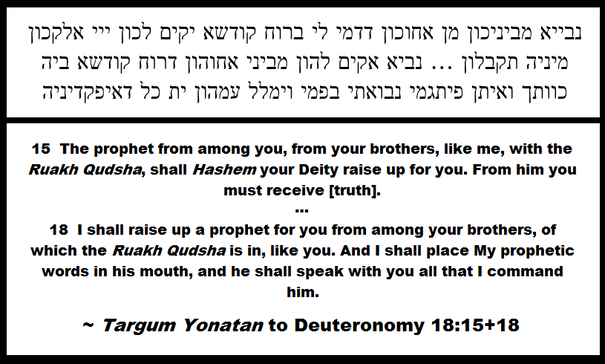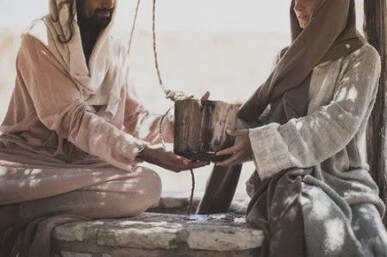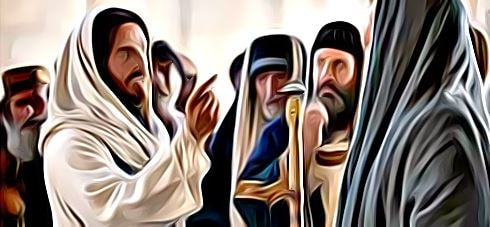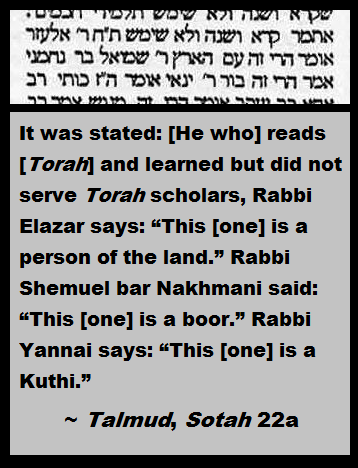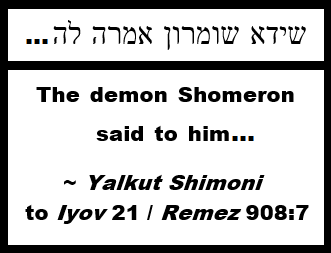THE SAMARITAN MESSIAH
by Jeremy Chance Springfield
6/3/20
Yeshua’s unconventional ministry brought Him face to face with many colorful characters not often otherwise encountered by typical rabbis of His day. He engaged readily with the people of the land in many animated instances. Be they fellow Jews or the occupying Romans, whether religious or just trying to make it through another day, His interactions with the populace ran the spectrum of characters expected to be confronted in first century Israel. Without prejudice Yeshua spoke publicly of the Kingdom of Heaven and called any who would so desire to unite under that singular and everlasting reign to worship the One Creator together with Him.
Of all with whom Yeshua interacted, one of the more unlikely of folk was the Samaritan people. His willingness to unreservedly deal with this particular group displays an openness not so quickly found in the records of Jewish historical accounts of how they were normally received. Indeed, at the time, for anyone knowledgeable of the history of the area, such dealings would have been astonishing.
Of all with whom Yeshua interacted, one of the more unlikely of folk was the Samaritan people. His willingness to unreservedly deal with this particular group displays an openness not so quickly found in the records of Jewish historical accounts of how they were normally received. Indeed, at the time, for anyone knowledgeable of the history of the area, such dealings would have been astonishing.
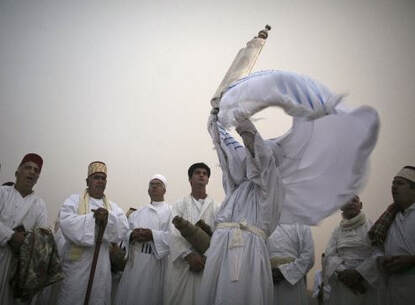
The Samaritans were somewhat of an artifact in the land of Israel; their presence in the middle of the Promised Land was essentially a scar of an ancient wound which the nation of Assyria to the north had struck upon the Hebrew people as far back as 722 BCE. During the reigns of the kings of Israel and Judah, the pagan nation had swept down into the land and removed most of the Hebrews who comprised the tribes of the northern Kingdom of Israel, leaving behind a sparse and feeble few—as well as the untouched population of the southern Kingdom of Judah. With so many dispersed, the nigh-emptied land had little means to remain productive in light of such reduced manpower. Assyria soon realized the weight of their mistake and sought a remedy. The hastily applied bandage of Assyria’s exile of ten of the tribes of Israel into the nations was enacted with the relocation of Gentiles into the land of Samaria and Galilee, who eventually coalesced into Samaria itself, and ended up intermarrying the few remnants of the exiled tribes who had remained behind to struggle on their own.
These foreigners, already steeped in idolatry from their own pagan roots, mixed their perverse faith with the weakened worship of the remnants of the northern tribes. The result of this idolatrous influence, among other unfortunate events, was an aberration of Torah—an apparently adulterated document with about six-thousand differences between it and the traditionally-accepted Torah preserved by the Jewish people. About half of these are merely orthographic in nature, and bear no worthy impact on meaning, but the remainder are of a nature that does change the content in some measurable way—mostly found in the book of Exodus. These many small altered instances are eclipsed by the shadow of a far more heinous error to the Jewish mind: the focus on an unsanctioned Temple at Mount Gerizim instead of at the divinely chosen epicenter which ultimately was revealed to be at Jerusalem.
It is important to first get a glimpse of how they were seen from the ancient perspective of the Jewish people around the time of the Messiah’s ministry. It will help provide some context to look at Jewish texts from ancient times to see what was going on in this situation. The unfortunate manner of worship at Gerizim was viewed by the rabbis of old to be of a horribly skewed type, to the point that they were rejected, having no part of the Hebrew people. The Talmud Bavli, tractate Chullin 6a, discusses an incident where a Rabbi was attempting to obtain wine from the Samaritans and encountered someone who ended up changing his mind and finally resulted in an astonishing judgment about the spiritual nature of those people.
These foreigners, already steeped in idolatry from their own pagan roots, mixed their perverse faith with the weakened worship of the remnants of the northern tribes. The result of this idolatrous influence, among other unfortunate events, was an aberration of Torah—an apparently adulterated document with about six-thousand differences between it and the traditionally-accepted Torah preserved by the Jewish people. About half of these are merely orthographic in nature, and bear no worthy impact on meaning, but the remainder are of a nature that does change the content in some measurable way—mostly found in the book of Exodus. These many small altered instances are eclipsed by the shadow of a far more heinous error to the Jewish mind: the focus on an unsanctioned Temple at Mount Gerizim instead of at the divinely chosen epicenter which ultimately was revealed to be at Jerusalem.
It is important to first get a glimpse of how they were seen from the ancient perspective of the Jewish people around the time of the Messiah’s ministry. It will help provide some context to look at Jewish texts from ancient times to see what was going on in this situation. The unfortunate manner of worship at Gerizim was viewed by the rabbis of old to be of a horribly skewed type, to the point that they were rejected, having no part of the Hebrew people. The Talmud Bavli, tractate Chullin 6a, discusses an incident where a Rabbi was attempting to obtain wine from the Samaritans and encountered someone who ended up changing his mind and finally resulted in an astonishing judgment about the spiritual nature of those people.
The verdict of “idolater” was laid upon the Samaritan people after careful examination from the rabbis. The fact they were viewed as in idolatry compounded the way their heritage was perceived by the rabbis, who felt they were a racial mixture of untenable degree—not on their pagan side, but on their Hebraic side! The Talmud Bavli, in tractate Kiddushin 75b, explains how they arrived at that surprising conclusion.
The notion of Kuthim (the ancient name for Samaritans) as being “lion converts” meant they were viewed as only having converted due to threat of death, and so their conversion was not held as sincere, and therefore, not valid. That made all subsequent offspring technically not legal members of the people of Israel, and on top of all this, based off of the quotation of an interpretation of the wording of 2nd Kings 17:32, the Israelites with whom they were traditionally esteemed to have married upon their insincere conversion were people who were themselves of already dubious legal standing somewhere in their own lineage, hinted as such through the term “thorns” in that Scriptural text.
All of these matters made for the general view of the Samaritans to the Jewish people as being half-breeds who were the progeny of two wholly unsuitable groups of people in terms of legal rights among the Jewish population. The issue at play was thus very much a racial one, yet not due to unfounded racial hatred, but rather on the technicalities of how they were legally viewed due to history and the questionable method of their worship.
All of these matters made for the general view of the Samaritans to the Jewish people as being half-breeds who were the progeny of two wholly unsuitable groups of people in terms of legal rights among the Jewish population. The issue at play was thus very much a racial one, yet not due to unfounded racial hatred, but rather on the technicalities of how they were legally viewed due to history and the questionable method of their worship.
In addition to this unique situation and the resulting status it placed upon them by their Jewish neighbors, the Samaritans rejected all Hebrew Scripture beyond the boundaries of their tainted version of the Torah. In their eyes the Jew held a place of apostasy, as they rejected the claims of the Samaritans to their own version of the Torah and proceeded to add many more texts in effort to support their differing opinion of what they preserved as the true religion.
The situation facing both Jew and Samaritan in first century times was something of a spiritual stalemate, with neither side prepared to give any ground to the status of the legitimacy of the other. Tensions were high and opinions were low, and the two peoples who both claimed to worship the same true Creator through slightly differing texts were as at odds as they had ever been.
Despite these differences, the two did share something very important in common. The Samaritans had no belief in the Jewish Messiah who is so loudly proclaimed by the mouths of prophets in Hebrew Scripture. Yet, this did not mean they were entirely without a hope of a redeemer. Based on the Mosaic promise in Deuteronomy 18:15 of a prophet who would rise at some point, they do still hold to a quasi-Messianic figure to come known as Taheb – “the Restorer.” The accompanying graphic shows the title in its ancient Samaritan Hebrew script as well as in modern Hebrew script.
The situation facing both Jew and Samaritan in first century times was something of a spiritual stalemate, with neither side prepared to give any ground to the status of the legitimacy of the other. Tensions were high and opinions were low, and the two peoples who both claimed to worship the same true Creator through slightly differing texts were as at odds as they had ever been.
Despite these differences, the two did share something very important in common. The Samaritans had no belief in the Jewish Messiah who is so loudly proclaimed by the mouths of prophets in Hebrew Scripture. Yet, this did not mean they were entirely without a hope of a redeemer. Based on the Mosaic promise in Deuteronomy 18:15 of a prophet who would rise at some point, they do still hold to a quasi-Messianic figure to come known as Taheb – “the Restorer.” The accompanying graphic shows the title in its ancient Samaritan Hebrew script as well as in modern Hebrew script.
These very different but sometimes oddly parallel beliefs put them at uncomfortable odds with their Jewish kin and served as points of contention and acts of animosity between them both for many generations. Interestingly, however, due to their hope in the Messianic figure of Taheb, the Samaritans were astoundingly astute in the type of Torah that they did perform. So much so were they in these matters that the Talmud makes a surprisingly favorable statement about them in this context in tractate Berachot 47b (and repeated by another in tractate Chullin 4a).
These expressions show that although the Samaritans were viewed in disdain in regard to their misappropriation of the Oraita (the Aramaic cognate of the Hebrew Torah), they were unabashedly commended for the parts of Torah they kept which aligned with the version preserved by the Jewish people. Such a detail speaks volumes about the nature of their heart: in the spirit of the Torah they walked with sincerity, but in the truth of the Torah they did not walk.
This rare positive portrait of the Samaritans is a much-needed glimpse of the people in order to appreciate how Yeshua dealt with their presence in His ministry. The fact that Yeshua was willing at all to interact with the Samaritans shows us the depth of His compassion and desire to share the truth with a people who, while sincere, were yet sincerely wrong.
Probably the most well-known incident involving His interaction with the Samaritans in the Gospels is contained in the book of John chapter 4. This account records an impromptu meeting between Yeshua and a Samaritan woman at Jacob’s well. The account begins with verses 4-9.
This rare positive portrait of the Samaritans is a much-needed glimpse of the people in order to appreciate how Yeshua dealt with their presence in His ministry. The fact that Yeshua was willing at all to interact with the Samaritans shows us the depth of His compassion and desire to share the truth with a people who, while sincere, were yet sincerely wrong.
Probably the most well-known incident involving His interaction with the Samaritans in the Gospels is contained in the book of John chapter 4. This account records an impromptu meeting between Yeshua and a Samaritan woman at Jacob’s well. The account begins with verses 4-9.

4 Yet, it had to be done that he should be brought through the midst of the Shamraye.
5 And He came to a city of the Shamraye that is called Shakar, near the edge of the field that Yaqub had given to Yasef, his son.
6 And the well of the water of Yaqub was there. But Yeshua, He was fatigued from the hardship of the road, and He sat Himself near the well, and it was the sixth of the hours.
7 And there came a woman from Shamrin, to fill water. And Yeshua said to her, “You must give to Me water to drink.”
8 Now, His students, they had went to the city, that they should buy themselves food.
9 The woman – the Shamrata – said to Him, “How do You – you who are a Yihudaya – ask a drink of me, a Shamrata woman?” For the Yihudaye have no dealings with the Shamraye.
5 And He came to a city of the Shamraye that is called Shakar, near the edge of the field that Yaqub had given to Yasef, his son.
6 And the well of the water of Yaqub was there. But Yeshua, He was fatigued from the hardship of the road, and He sat Himself near the well, and it was the sixth of the hours.
7 And there came a woman from Shamrin, to fill water. And Yeshua said to her, “You must give to Me water to drink.”
8 Now, His students, they had went to the city, that they should buy themselves food.
9 The woman – the Shamrata – said to Him, “How do You – you who are a Yihudaya – ask a drink of me, a Shamrata woman?” For the Yihudaye have no dealings with the Shamraye.
Yeshua’s request of the woman was highly unorthodox. It was not typical for a Jewish man to casually address a woman in such a setting, and yet He had no qualms in doing so—let alone the fact that she was a Samaritan. These matters alone should have prevented any communication from occurring. The Talmud Bavli, in Eruvin 53b, records an incident that is somewhat comical, but connects well to the sentiment of the passage from John.
Beruriah was the wife of the esteemed Rabbi Meir, and she was famous for her significant but uncommon level of Torah education. Here she exemplified her astute learning and showed the northern-born Rabbi Yose he could have done better, for he spoke four words to her in the Hebrew, and she reprimanded him with a two-word alternative he could have uttered – literally showing he “multiplied” his words unnecessarily. This rather humorous account displays yet the cultural detail at that time of the need for a man to go out of his way to speak as little as possible to a woman not his family. This fact taken in perspective of the account of Messiah at the well speaking liberally to a woman – and a Samaritan, at that – shows that the Galilean attitude was indeed quite different than the closely-observed conservative piety of southern Judea. He had no qualms in setting aside the racial tensions that normally ruled such interaction and used this opportunity to speak to their common yearning of having a meaningful co-existence before the Holy One.
Yeshua’s response wastes no further time in getting to the intent of His choice to interact with her. Verses 10-15 record what happened next.

10 Yeshua answered, and said to her, “If you had known the gift of Alaha, and who this is that said to you, ‘You must give Me to drink,’ you would ask of Him, and He would give to you living waters.”
11 The woman said to Him, “My Master, there is no water-pot for You, and the cistern is deep. How do You have living waters?
12 Why, are You greater than our father Yaqub, he who gave to us this cistern, and who drank from it, and his sons, and his flocks?”
13 Yeshua answered, and said to her, “All who shall drink from these waters shall again thirst.
14 Yet, all who shall drink from the waters that I shall give him shall not thirst forever, but those waters that I give him shall be in him the well of waters that shall be bubbling up to life that is everlasting!”
15 The woman said to Him, “My master, you must give to me from these waters, that I shall not again be thirsty, and not be coming to draw from here!”
10 Yeshua answered, and said to her, “If you had known the gift of Alaha, and who this is that said to you, ‘You must give Me to drink,’ you would ask of Him, and He would give to you living waters.”
11 The woman said to Him, “My Master, there is no water-pot for You, and the cistern is deep. How do You have living waters?
12 Why, are You greater than our father Yaqub, he who gave to us this cistern, and who drank from it, and his sons, and his flocks?”
13 Yeshua answered, and said to her, “All who shall drink from these waters shall again thirst.
14 Yet, all who shall drink from the waters that I shall give him shall not thirst forever, but those waters that I give him shall be in him the well of waters that shall be bubbling up to life that is everlasting!”
15 The woman said to Him, “My master, you must give to me from these waters, that I shall not again be thirsty, and not be coming to draw from here!”
His words are deceptively simple, for they hold a meaning that is not truly understood by this woman – as her reply in verses 11-12 reveals. The intent of Yeshua is obviously speaking about something much more than liquid water.
He speaks of “living waters.” Linguistically, this is a Hebraic idiom for “flowing water.” The well itself would be designated as a source of “living water,” but here Yeshua declares that He Himself possesses “living water,” that is, He is a source for “flowing water,” which is physically impossible, obviously. Something more is being suggested here.
He speaks of “living waters.” Linguistically, this is a Hebraic idiom for “flowing water.” The well itself would be designated as a source of “living water,” but here Yeshua declares that He Himself possesses “living water,” that is, He is a source for “flowing water,” which is physically impossible, obviously. Something more is being suggested here.
Contained in His reply is a hint at her spiritual situation: in verse 14 He speaks of this special water as “bubbling up” to an eternal reward. The term for “bubbling up” is the Aramaic D’NABEEN, from the root N’BA "bubble / prophesy." The significance of this is that the word for “prophet” is NABEEYA. The root notion is that a prophet is someone in whom the spirit is “excited / bubbling” by the Divine to express His will. This concept is shared also with the Hebrew cognates for “prophet” and “bubbling up,” showing that Yeshua was making a connection that would have been very obvious to anyone familiar with the Semitic tongues at the time.
The similarities here are quite certainly intended by the Messiah, for His words are directed to the heart of this Samaritan woman. Based on the passage in the Deuteronomy 18:15 that speaks of another prophet being raised up for them like Moses, they await the coming of one more individual whom they esteem like the Jews esteem the Messiah. The words of Yeshua thus hold weight as inferences of the “prophet” who will usher in the golden age for the Samaritans, which explains the woman’s subsequent willingness to speak so unhindered with Yeshua.
Despite this, the woman still does not understand the meaning of His words, as her reply in verse 15 further reveals. In fact, what He speaks of is easily missed by many today if we do not have an appreciation for the Hebraic context in which He was teaching. His mention of possessing special waters that are able to confer everlasting life upon the individual is imagery that is familiar in other spiritual texts of Judaism but is mentioned without any further explanation in the text here. In the Aramaic Targum of Shir haShirim (The Song of Songs) 4:15, the text refers to the well that King Solomon’s text mentions but interprets it much differently.
Despite this, the woman still does not understand the meaning of His words, as her reply in verse 15 further reveals. In fact, what He speaks of is easily missed by many today if we do not have an appreciation for the Hebraic context in which He was teaching. His mention of possessing special waters that are able to confer everlasting life upon the individual is imagery that is familiar in other spiritual texts of Judaism but is mentioned without any further explanation in the text here. In the Aramaic Targum of Shir haShirim (The Song of Songs) 4:15, the text refers to the well that King Solomon’s text mentions but interprets it much differently.
Yeshua being a teacher of Torah and His reference of possessing “living waters” matches the context of the Targum’s passage of the Oraita being a well of living waters. The word ORAITA is the direct Aramaic equivalent to the Hebrew term Torah, mentioned previously in this study. This hint by Yeshua is in regard to the legitimate Torah held by the Jews, and not the altered Torah of the Samaritans. Yeshua, a Torah-teacher par excellence, holds within Him the ability to confer on her the truth of the Word of the Holy One (“living waters”) that can bring her the hope of everlasting life.
This unquoted reference to the Targumic text of The Song of Songs highlights a connection that He actually returns to several verses to come and will be addressed here in due time. Unfortunately for the Samaritan woman, she would likely have had zero clue as to what He was referencing, since although her people were formed directly in opposition to King Solomon’s regnal authority, she almost certainly would not have dared to read any works of that rejected monarchial line.
The account continues in verses 16-20, where Yeshua displays a miraculous knowledge of this woman’s life, and which immediately signals to her that He is someone whose worth is beyond anything she initially imagined.
The account continues in verses 16-20, where Yeshua displays a miraculous knowledge of this woman’s life, and which immediately signals to her that He is someone whose worth is beyond anything she initially imagined.
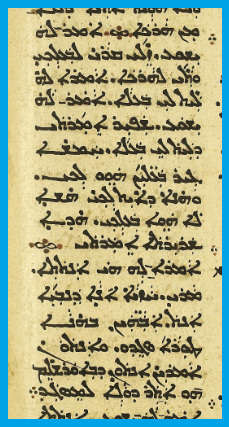
16 Yeshua said to her, “You must go! You must call unto your husband and bring him here!”
17 She said to Him, “There is no husband for me.” Yeshua said to her, “Beautifully have you said that there is not a husband for you,
18 for five husbands were for you, and this one whom is for you now is not your husband. This you spoke truthfully.”
19 The woman spoke to Him, “My master, I behold that you are the Prophet!!
20 Our fathers, on this mountain, worshipped! And you, you say that in Urishlem is the proper area to worship.”
17 She said to Him, “There is no husband for me.” Yeshua said to her, “Beautifully have you said that there is not a husband for you,
18 for five husbands were for you, and this one whom is for you now is not your husband. This you spoke truthfully.”
19 The woman spoke to Him, “My master, I behold that you are the Prophet!!
20 Our fathers, on this mountain, worshipped! And you, you say that in Urishlem is the proper area to worship.”
Upon hearing this impossible knowledge from His mouth, the woman immediately recognizes His special position, and her response contains two important parts.
The first is in verse 19 in that she calls Yeshua “The Prophet.” While most translations render it as the Greek literally reads: “a prophet,” this unfortunately misses the power of her exclamation as it is preserved best in the Aramaic, as the Greek reading ignores the religio-cultural factors that would prohibit a Samaritan from calling just anyone a “prophet” who is not their long-expected “prophet after Moses,” whom they call Taheb “the Restorer.” When the reader understands the Aramaic is in the emphatic, which is to say it means: “the Prophet,” it necessitates that this exclamation of the woman is far more than an acknowledgement of a close relationship with the Deity in Yeshua – rather, it shows her belief that He is the One for whom her people have waited for so long! This notion of the awaited “Prophet” is also referenced in Mark 6:15 and John 1:21 and shows that even Jews were well aware of the Samaritan expectation for such an appearing.
The first is in verse 19 in that she calls Yeshua “The Prophet.” While most translations render it as the Greek literally reads: “a prophet,” this unfortunately misses the power of her exclamation as it is preserved best in the Aramaic, as the Greek reading ignores the religio-cultural factors that would prohibit a Samaritan from calling just anyone a “prophet” who is not their long-expected “prophet after Moses,” whom they call Taheb “the Restorer.” When the reader understands the Aramaic is in the emphatic, which is to say it means: “the Prophet,” it necessitates that this exclamation of the woman is far more than an acknowledgement of a close relationship with the Deity in Yeshua – rather, it shows her belief that He is the One for whom her people have waited for so long! This notion of the awaited “Prophet” is also referenced in Mark 6:15 and John 1:21 and shows that even Jews were well aware of the Samaritan expectation for such an appearing.
This admission is huge, as she recognized His spiritual merit and proceeded to accept it as binding. For her as a Samaritan, such welcome of the position of Taheb in the person of a Jew speaks incredibly to her spiritual sincerity for the Kingdom, despite her worship being based on a text marred by falsehood.
Secondly, the very first thing she wants to know after acknowledging Yeshua as the Prophet centers on the question of the legitimacy of the location for worship: is the Temple at Mount Gerizim valid, like the Samaritans teach, or is the Temple at Jerusalem valid, like the Jews teach?
Yeshua’s answer is incredibly enlightening, as we see in verses 21-24:
Secondly, the very first thing she wants to know after acknowledging Yeshua as the Prophet centers on the question of the legitimacy of the location for worship: is the Temple at Mount Gerizim valid, like the Samaritans teach, or is the Temple at Jerusalem valid, like the Jews teach?
Yeshua’s answer is incredibly enlightening, as we see in verses 21-24:
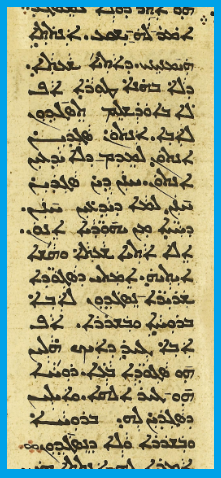
21 Yeshua said to her, “Woman, you must trust Me, that there is coming the hour that neither on this mountain, even not in Urishlem, shall you worship the Father.
22 You, you are worshipping the thing that you do not know. Yet we, we are worshipping what we know, for life is from the Yihudaye!
23 But, the hour comes, and is now, when the true worshippers shall worship the Father in the Spirit and in the truth, for the Father even requires worshippers such as these.
24 For Alaha is Spirit, and those who are worshipping Him, in Spirit and in truth properly worship Him.”
Yeshua prophesies a union of true believers worshiping the Holy One together, without qualm over where the proper place for worship might be located. His words about the northern Samaritans and the southern Judeans united in focus on the Creator are a hint back to the text of The Song of Songs 4:16, which speaks of the north wind and the south wind as they meet in union at the Garden where the Beloved dwells.

Awake, O North, and come, O South! You must breathe [on] my garden to make its spices flow! My beloved has come to his garden and eaten his precious fruits!
His words show us that the purpose is union. Although the northern Kingdom of Israel broke faith and mixed with pagan peoples, creating an enduring racial tension for centuries, the Divine intent was always unity between all of Israel—and the peoples of the world—in the act of worship of the Creator as revealed through Moses and the Prophets, and ultimately, through the Messiah.
It is also of interest that Yeshua mentions the idea of the “Spirit” three times in the span of verses 23-24. The reason for this does not stand out so much in the immediate flow of the text, but finds its likely significance when we look at the ancient Aramaic of the Targum Yonatan of Deuteronomy 18:15+18, which, in speaking about the unique prophet who is promised will come, refers to him there as coming “in/with” the RUKHA QUDSHA “Holy Spirit!”
It is also of interest that Yeshua mentions the idea of the “Spirit” three times in the span of verses 23-24. The reason for this does not stand out so much in the immediate flow of the text, but finds its likely significance when we look at the ancient Aramaic of the Targum Yonatan of Deuteronomy 18:15+18, which, in speaking about the unique prophet who is promised will come, refers to him there as coming “in/with” the RUKHA QUDSHA “Holy Spirit!”
Noting this detail of this Aramaic version of the Torah’s relevant passage suggests that perhaps the Targum’s reading was more widespread than just among the Jews, but that the Samaritans would have potentially been familiar with its alternative readings, and as such, this threefold reference to the “Spirit” in Yeshua’s words would have made sense in light of the context even to this woman. The inference from this apparent connection is that Yeshua Himself is that prophet possessing the Holy Spirit—a detail which we see in the upcoming verse 26 He finally has to state outright.
To this prophecy of a future unity, the woman responds in a good-faith declaration, which is surprising, but still a positive step forward, in verse 25.
To this prophecy of a future unity, the woman responds in a good-faith declaration, which is surprising, but still a positive step forward, in verse 25.
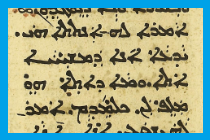
The woman said to Him, “I know that the Messiah comes, and that when he comes, he teaches us every thing.”
Yeshua wants her to realize the true identity of who is speaking with her, that the Taheb identity known to the Samaritans, whom she has just recently declared Him to embody, is the same as the Messiah identity of the Jews, thus showcasing the unity He prophesied is present already in the person standing before her, if she would only just accept it! Verse 26 gives that response as plainly as can be.
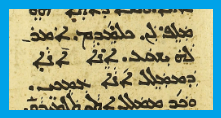
Yeshua said to her, “I who am speaking—I am with you!”
Yeshua embodied the nature of the Taheb and the role of the Messiah in one. His purpose is to unite people with the Creator, and His words to this woman show that He is ready and willing to do just that, for He alone possesses the authority as both to bring this unity to all who are willing to worship in Spirit and truth.
The woman’s reaction to this realization is to leave Him sitting at the well and go into town to spread the news, as verses 28-30 declare.
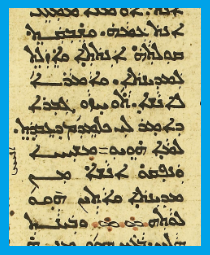
28 And the woman left her pitcher, and she went to the city, and said to the men,
29 “You must come, you must see the man who told me every thing that I have done! Why…is he the Messiah?!”
30 And the men went out of the city and came to Him.
Her witness of this abnormal but amazing meeting was heeded by the people of the Samaritan town, and they had to come see for themselves the reality of this strange Jewish man in their midst. Verses 39-42 present their reaction.
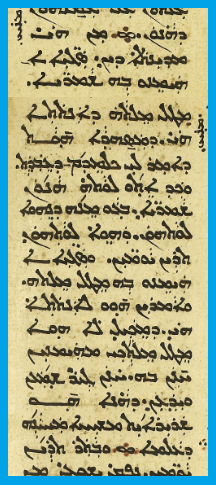
39 Yet, from that city many Shamraye trusted in Him, on account of the word of the woman who had witnessed: “He told me every thing that I have done.”
40 And when those Shamraye had come to Him, they beseeched from Him that He be with them, and He was with them two days.
41 And many trusted in Him on account of His word.
42 And they said to the woman, “Henceforth, not on account of your word are we trusting in him, for we have heard and seen that this one is truly the Messiah, the Life-Giver of the world!”
In the end, Yeshua is vindicated as the legitimate Samaritan Taheb and Jewish Messiah in the same flesh. The Samaritans accept His status among them with astounding faith.
He showed a willingness to meet them where they were at, literally and figuratively, and did not let centuries of racial bias prevent the truth from being shared with hearts that were willing to receive. He proved Himself the Samaritan Messiah in His eagerness to see truth blossom in their hearts. This restoration came not only on their soul level, but also in the physical, as we see in a different encounter between Yeshua and ten Samaritan lepers, recorded for us in the Gospel of Luke chapter 17.
In that passage, Yeshua is again traveling through the district of Samaria towards Jerusalem and meets these afflicted men who were willing to humble themselves and ask a Jew for their healing. The response they receive is one that is seemingly overlooked in its impact. Luke 17:14 preserves the startling command Yeshua gives them.
He showed a willingness to meet them where they were at, literally and figuratively, and did not let centuries of racial bias prevent the truth from being shared with hearts that were willing to receive. He proved Himself the Samaritan Messiah in His eagerness to see truth blossom in their hearts. This restoration came not only on their soul level, but also in the physical, as we see in a different encounter between Yeshua and ten Samaritan lepers, recorded for us in the Gospel of Luke chapter 17.
In that passage, Yeshua is again traveling through the district of Samaria towards Jerusalem and meets these afflicted men who were willing to humble themselves and ask a Jew for their healing. The response they receive is one that is seemingly overlooked in its impact. Luke 17:14 preserves the startling command Yeshua gives them.
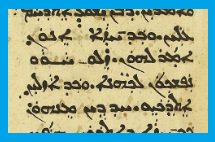
And when He saw them, He said to them, “You must go; you must show yourselves to the priests!” And when they went, they were purified!
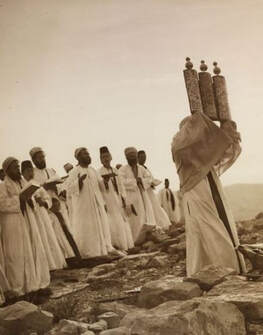
Yeshua’s response to their cry for mercy for their pitiable states is amazing: they must show themselves to the priests! What is so astounding about this oddly simple mandate? The uniqueness of it is that Yeshua is in a Samaritan locale and demands of these men to show themselves to the priests. Samaritans, as explained in a previous Talmudic quote, were not missing priests among them. Their functioning Temple was serviced by a priestly class. However, the priests who officiated for them were viewed by the rabbis as invalid intercessors for failures both personal and regarding the place of their priestly activity—Mount Gerizim.
The fact that Yeshua did not mandate that they ascend further south to Jerusalem and display themselves only to the legitimate Levitical priests functioning there is an example of His willingness to meet the Samaritans where they were at to a profound degree in order for them to see that there was no reason to continue the divide which had existed between them and the Jewish people for centuries.
No Samaritan would think for a moment to validate the Judean Temple and its priests by showing themselves in King Solomon’s House. Rather, being that they were in a Samaritan town and told to show themselves to the priests, and that only one returned from fulfilling this request in an apparently hasty timeframe, proves that it was not to the Temple in Jerusalem that they went (some 30-odd mile trip in one direction), but to the unsanctioned Samaritan Temple at Mount Gerizim! And yet this error of Samaritan spiritual sincerity did not prevent Yeshua from healing all ten lepers before they even reached that idolatry-laced location!
The fact that Yeshua did not mandate that they ascend further south to Jerusalem and display themselves only to the legitimate Levitical priests functioning there is an example of His willingness to meet the Samaritans where they were at to a profound degree in order for them to see that there was no reason to continue the divide which had existed between them and the Jewish people for centuries.
No Samaritan would think for a moment to validate the Judean Temple and its priests by showing themselves in King Solomon’s House. Rather, being that they were in a Samaritan town and told to show themselves to the priests, and that only one returned from fulfilling this request in an apparently hasty timeframe, proves that it was not to the Temple in Jerusalem that they went (some 30-odd mile trip in one direction), but to the unsanctioned Samaritan Temple at Mount Gerizim! And yet this error of Samaritan spiritual sincerity did not prevent Yeshua from healing all ten lepers before they even reached that idolatry-laced location!
These are the only two incidents which the Gospels record where Yeshua directly interacted with the Samaritan people. These two situations show that the impact He made even with such brief attention was profound, and the kindred spirit formed between them was a sincere and lasting reality. While entirely unexpected, Yeshua’s acceptance by so many from the Samaritan people stood in stark contrast to His similar rejection by so many from His own kin.
This can be seen by returning to the book of John 8:37 (verse 48 in Greek-based versions). In that passage, His fellow Jews cast an accusation upon Him.
This can be seen by returning to the book of John 8:37 (verse 48 in Greek-based versions). In that passage, His fellow Jews cast an accusation upon Him.
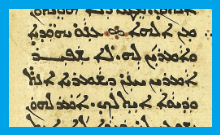
The Yihudaye replied, and said to Him, “Did we not beautifully say you are a Shamraya, and you have a demon?”
The words asserted against Him are weaponized, calculated to damage Him as much as possible in the eyes of those who were present. The severity of their words is often not realized, unfortunately, unless we return to ancient Jewish literature and seek to understand them from that Semitic context.
While it is known that Samaritans were viewed with generally unfavorable eyes and untrusted by most of the Jewish population at the time, the implications of their choice of term in this account is a weapon thrust at Him with a four-fold prong at its end.
The most obvious barb is the literal connection to the Samaritan people, which would immediately cause a doubt to be cast upon Yeshua’s legitimacy as a Torah teacher: if He could be viewed as potentially compromised in the very source text of the Torah, then nothing He taught would be esteemed of any value.
This literal understanding of SHAMRAYA could alternatively have been a nod to His northern roots—having a hometown beyond Samaria in rugged Galilee, so familiar with the Gentiles that bordered and passed through the land, He would be defamed with a sour “kindness” by merely referring to Him as a closer “Samaritan.”
A third implied barb lay in the fact that in the Talmud Bavli, Sotah 22a, anyone who did actively and sincerely study Torah, but did not pay homage to their contemporaneous Torah scholars in their respective academies, were labeled with the pejorative of “Samaritan,” or as the text says—a Kuthi.
The most obvious barb is the literal connection to the Samaritan people, which would immediately cause a doubt to be cast upon Yeshua’s legitimacy as a Torah teacher: if He could be viewed as potentially compromised in the very source text of the Torah, then nothing He taught would be esteemed of any value.
This literal understanding of SHAMRAYA could alternatively have been a nod to His northern roots—having a hometown beyond Samaria in rugged Galilee, so familiar with the Gentiles that bordered and passed through the land, He would be defamed with a sour “kindness” by merely referring to Him as a closer “Samaritan.”
A third implied barb lay in the fact that in the Talmud Bavli, Sotah 22a, anyone who did actively and sincerely study Torah, but did not pay homage to their contemporaneous Torah scholars in their respective academies, were labeled with the pejorative of “Samaritan,” or as the text says—a Kuthi.
The fact that Yeshua was comfortable in calling out some of the Pharisees in their unacceptable behavior, and did not always align with the majority opinion on religious matters, easily would have landed Him in the “Samaritan” category of terms, where most students of the normative Torah academies would not want to associate with Him due to His willingness to oppose.
The fourth implied barb is arguably the most devious: the referent of SHAMRAYA could easily have been a round-about way of linking Yeshua to the demonic realm more than just by suggesting He had a demon, as the latter half of their assertion states outright. By calling Him SHAMRAYA, their choice of word could have been implying the term SHOMERON, which is not only the Hebrew pronunciation for Samaria, but is also an alternative pronunciation of the name of Ashmedai / Asmodeus—the king of all demons, as such according to ancient Jewish texts. SHOMERON is a minor-attested variant of SHEMADON, which is itself a version of ASHMEDAI. SHOMERON can be seen supported in the ancient Jewish text of Yalkut Shimoni to Iyov (Job) 21, Remez 908.
The fourth implied barb is arguably the most devious: the referent of SHAMRAYA could easily have been a round-about way of linking Yeshua to the demonic realm more than just by suggesting He had a demon, as the latter half of their assertion states outright. By calling Him SHAMRAYA, their choice of word could have been implying the term SHOMERON, which is not only the Hebrew pronunciation for Samaria, but is also an alternative pronunciation of the name of Ashmedai / Asmodeus—the king of all demons, as such according to ancient Jewish texts. SHOMERON is a minor-attested variant of SHEMADON, which is itself a version of ASHMEDAI. SHOMERON can be seen supported in the ancient Jewish text of Yalkut Shimoni to Iyov (Job) 21, Remez 908.
Yeshua’s response to this loaded accusation is direct in verse 38 (49 in Greek-based versions).
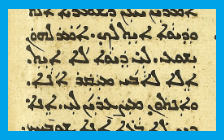
Yeshua said to them, “Unto Me there is no devil, but My Father I value, and you despise Me.”
Notice the careful way He responded. Knowing that their question was dangerously loaded, He answered in a way that spoke to their accusation in a telling and brilliant manner:
- They wished to insinuate He was not from those parts—this was acceptable. There would be no denial of the accusation of being a “Samaritan.”
- They wished to display a cold kindness by not referring to Him as a Galilean, but by the nearer “Samaritan”—this was acceptable. Let the people ridicule Him if this was the best they could muster.
- They wished to refer to Him through the derogatory “Samaritan” as not supporting fully the rabbinic schools of Judea—this was acceptable. He did not align 100% with any single academy but held firmly to the leading of Heaven to arrive at His determination of matters.
- They wished to imply He was led by a demonic entity—this alone did He blatantly reject as a falsehood. Yet, He rejected it not by distancing Himself from the term SHAMRAYA, but by negating the suggestion of having a devil.
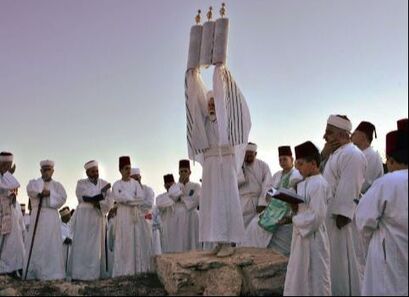
In this simple but brilliant reply, He did not alienate Himself from the kindred spirit of true worship He found in the hearts of so many in Samaria, yet He also did not agree to the unfounded accusation of being led by demonic forces, which would have utterly alienated Him from His own kinsmen, too.
In these matters Yeshua showed a unity still with both peoples, even though His Jewish brothers were largely despising Him: Judah and Samaria were yet harmonized in Him with His reply, for He upheld the role of Taheb and Messiah at the same time. Thus, we see in this incident from John chapter 4, Luke chapter 17, and John chapter 8 that Yeshua desired to be the Samaritan Messiah just as much as He knew His role would eventually be accepted also by His Jewish kinsmen as the Jewish Messiah. That ready acceptance by the Samaritans was no small event in light of the racial animosity which existed between the peoples, and so was something He honored as true and did not let such an association cause Him a moment’s anxiety, but boldly stood in alignment with the kindred nature He found there when He was later accused of some level of confederacy with that people. In unexpected but significant encounters with the Samaritan people, Yeshua displayed the purpose of the Messiah was to harmonize the disparate peoples of this world into a unity wherein true worship of the Creator would be natural, sincere, and in Spirit and in truth.
In these matters Yeshua showed a unity still with both peoples, even though His Jewish brothers were largely despising Him: Judah and Samaria were yet harmonized in Him with His reply, for He upheld the role of Taheb and Messiah at the same time. Thus, we see in this incident from John chapter 4, Luke chapter 17, and John chapter 8 that Yeshua desired to be the Samaritan Messiah just as much as He knew His role would eventually be accepted also by His Jewish kinsmen as the Jewish Messiah. That ready acceptance by the Samaritans was no small event in light of the racial animosity which existed between the peoples, and so was something He honored as true and did not let such an association cause Him a moment’s anxiety, but boldly stood in alignment with the kindred nature He found there when He was later accused of some level of confederacy with that people. In unexpected but significant encounters with the Samaritan people, Yeshua displayed the purpose of the Messiah was to harmonize the disparate peoples of this world into a unity wherein true worship of the Creator would be natural, sincere, and in Spirit and in truth.
All study contents Copyright Jeremy Chance Springfield, except for graphics and images, which are Copyright their respective creators.
